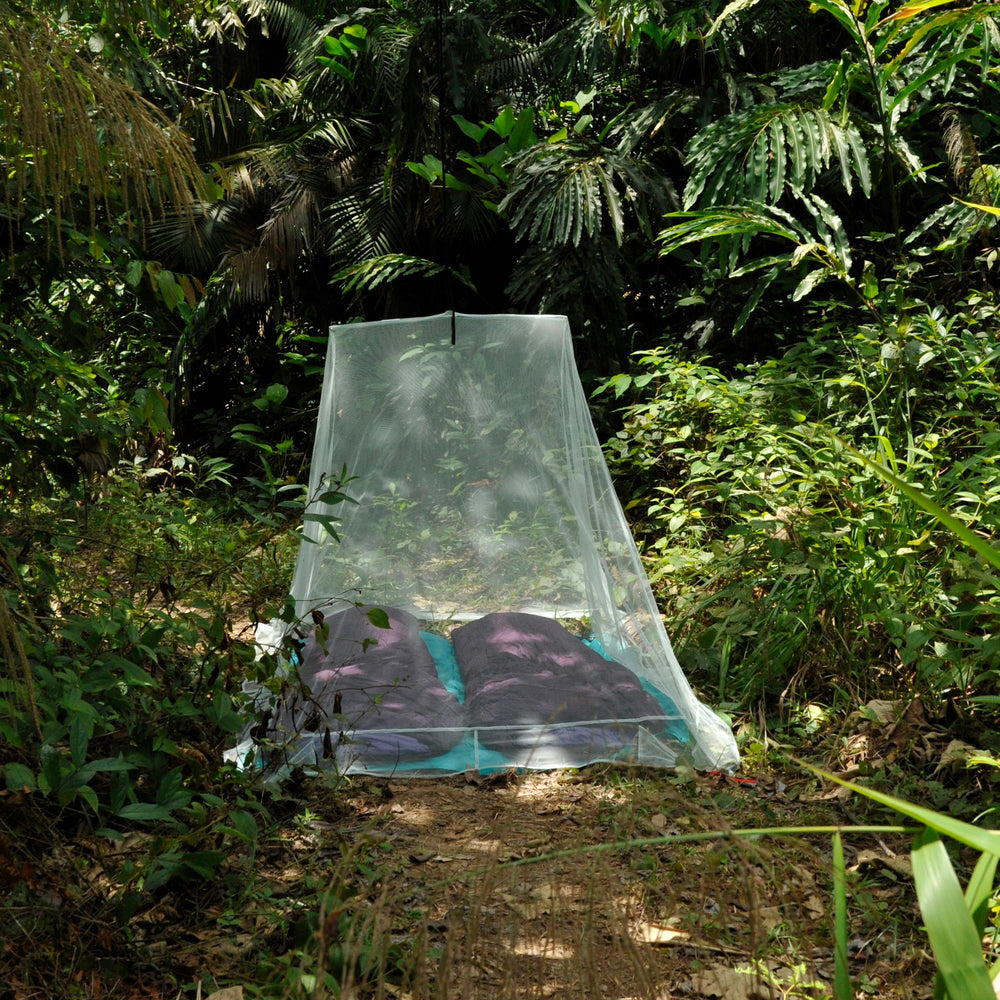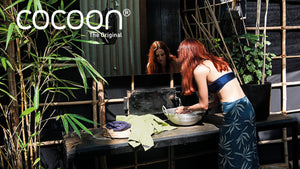Mosquitoes are small, flying insects that are found in most parts of the world. They are known for their ability to transmit diseases such as malaria, dengue fever, and Zika virus, which have serious health consequences for humans. Mosquito nets are designed to create a physical barrier between humans and mosquitoes, thereby reducing the risk of mosquito bites and the transmission of diseases.
Choosing the Right Insect Net for Your Needs
When traveling and camping, mosquito nets can be used in a variety of ways to protect humans. For example, they can be hung over beds or placed around sleeping areas to create a protective barrier. Mosquito nets can also be used to cover windows and doors to prevent mosquitoes from entering a living space.
There are several types of mosquito nets available on the market, including those made from polyester, nylon, or polyethylene. Some mosquito nets are treated with insecticides to help kill or repel mosquitoes, while others are not. Mosquito nets can be purchased in a variety of sizes and shapes to fit different needs and preferences.
There are also many hole sizes in the material ranging from 500 holes per square inch to 600 holes per square inch. The WHO (World Health Organization) HYPERLINK has made it known that insect netting, which is 600 holes per square inch or more, will keep out the smallest insects on the planet.


Mosquito nets are an effective way to protect you but there are a few precautions that travelers should take when using mosquito nets to make sure:
- It is important to ensure that the new is properly secured and does not touch the ground or other surfaces. Mosquitoes can crawl through small openings, so it is important to keep the net away from the ground and any other surfaces that mosquitoes may be able to crawl through.
- It is also important to avoid using perfumes, colognes or other scented products while using mosquito nets.
- Mosquitoes are attracted to strong odors and using scented products while sleeping under a mosquito net may increase the risk of being bitten.
- Travelers would be aware that mosquito nets are not a complete solution to the problem of mosquito bites. Mosquitoes can still find their way through small openings or gaps in the net, so it is important to use other mosquito control measures in addition to mosquito nets. These measures may include using mosquito repellent, wearing long-sleeved shirts and pants and staying indoors during peak mosquito hours (dawn and dusk).
- Another important aspect of using mosquito nets when traveling and camping is choosing the right type of net for the specific needs and circumstances. For example, travelers who are camping in a mosquito-prone area may want to consider using a net that is treated with an insecticide, as this can help to kill or repel mosquitoes. These nets may be more effective at protecting against mosquito bites, but it is important to follow the manufacturer’s instructions carefully.
- It is also important to choose a mosquito net that is the right size and shape for the specific needs and circumstances. For example, travelers who are camping in a tent may want to consider using a net that is designed to fit over a sleeping bag or air mattress, while travelers who are staying in a hotel or guesthouse may want to use a net that is designed to fit over a bed.
- Travelers should consider the durability and ease of use of the mosquito net when choosing which one to use. Some mosquito nets are designed to be easily set up and taken down, while others may require more effort. Travelers should choose a net that is easy to use and that is durable enough to withstand the rigors of travel.
One of the main advantages of using mosquito nets when traveling and camping is that they are lightweight and easy to carry. This makes them a convenient option for travelers who may not have access to other types of mosquito control measures, such as mosquito repellent or mosquito coils. Mosquito nets are also relatively inexpensive, making them an affordable option for travelers on a budget.
In addition to protecting humans from mosquito bites, mosquito nets can also help prevent the transmission of diseases.
Mosquitoes are the primary vectors for diseases such as malaria, which is transmitted when a mosquito bites an infected person and then bites a healthy person. By creating a physical barrier between humans and mosquitoes, mosquito nets can help reduce the risk of transmission of these diseases.
Another benefit of using mosquito nets when traveling and camping is that they can help create a more comfortable sleeping environment. Mosquitoes are most active at dawn and dusk, and their bites can be irritating and disruptive to sleep. By using a mosquito net, travelers can sleep more peacefully without the risk of being bitten.
It is important to use mosquito nets properly in order to maximize their effectiveness. When setting up a mosquito net, it is important to ensure that it is properly stretched and taut. This will help to create a more secure barrier that will prevent mosquitoes from getting through. It is also important to check the net regularly for holes or tears and to repair or replace the net if necessary.
Mosquito nets are an effective way to protect you from mosquito bites when traveling and camping and there are are convenient options available. They are lightweight, easy to carry, and relatively inexpensive, making them a good option for travelers who want to reduce their risk of mosquito bites and the transmission of diseases. It is important to use mosquito nets properly and to use other mosquito control measures in addition to mosquito nets in order to maximize their effectiveness. By choosing the right type of net and using it properly, travelers can help to protect themselves and others from the health risks associated with mosquito bites.WHAT IS INSECT SHIELD® TECHNOLOGY?
Insect Shield® offers powerful, odorless protection, proven to repel biting and disease-spreading insects like mosquitoes, ticks, ants, flies, chiggers, and midges (no-see-ums).
Insect Shield was the result of the U.S. military petitioning the founder of the company to uncover a method in which to bind permethrin to apparel and fabric for long-term effectiveness.
The result was Insect Shield®: A military-grade insect repellant that binds to fabric for up to 70 washes—the average lifespan of most garments.
In 2009 COCOON® launched a first-of-its-kind complete line of Insect Shield®-infused sleep systems, mosquito nets, and sleepwear.
Permethrin has been certified by the U.S. Environmental Protection Agency (EPA) since 1997. Permethrin has been used in pet care and children’s products regulated by the FDA, and carries an excellent safety record.
The World Health Organization guidelines recommend insect nets with no less than 500 holes per square inch. This is sufficient for keeping out every kind of insect, including the tiniest of black flies and no-see-ums.
Insect net mesh size is indicated by the denier unit. Smaller denier mesh will keep out smaller bugs. For instance, 40D mesh has 324 holes per square inch, 15D mesh has 600 holes per square inch (and exceeds the World Health Organization’s safety guidelines).
Your travel style and personal preferences as well as the location of travel will dictate the best insect net for you. Use this guide to help you make an educated decision and to ensure you enjoy safe travels and a sound night's sleep—void of bothersome and biting bugs.




